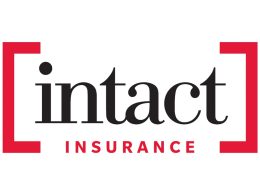This article is a guest contribution by David Andrews, CFA, Director, Investment Management & Research, Richardson GMP Ltd.
“One of these things is not like the others,
one of these things just doesn’t belong.
Come on, can you tell which one?”
- Sesame Street’s Cookie Monster
The three major business headlines this past week were separate and yet familiar in that each of them could singlehandedly throw a significant wrench into the gears of the global economic recovery that is now unfolding. As if more than 10 hours of grilling in front of the U.S. Congress wasn’t bad enough, Goldman Sachs learned late in the week that Federal Prosecutors in New York have begun a preliminary investigation into criminal securities fraud charges against the embattled investment bank. This is in addition to the civil charges brought forth by the Securities & Exchange Commission a couple of weeks ago. While a criminal case will be exponentially more difficult to win, the state’s attorney does feel a political obligation to review the case against Goldman. Charges may or may not be forthcoming but the stakes are high for the outcome will likely result in dramatic financial reforms to alter the money making abilities not just of Goldman Sachs, but for all investment bankers and the investing community at large. Much like during the Tiger Woods’ press statement earlier in the month, trading volumes on the NYSE were much lighter than normal as traders watched the back and forth of the Congressional question and answer period on live television.
Also unfolding is the story of the major oil spill in the Gulf of Mexico, now reported to be five times larger than estimated and bearing down on the U.S. coastal area. The leak followed an explosion aboard a deep water oil rig where 11 workers died two weeks ago. Given the prevailing winds and ocean current patterns, the oil slick was expected to reach the coastal waters and inlets of the Mississippi delta posing havoc for both the environment and the local economies which are now just recovering from hurricanes Rita and Katrina in 2005. Difficulty capping the leak is due to the depth of water over the well. At the revised rate of leakage, this could become the worst U.S. environmental disaster ever. Oil prices rose last week as the coastal areas impacted by the spill are key shipping ports for U.S. energy and the White House placed a moratorium on future deep water drilling until the cause of the current disaster is known.
Last week, Standard & Poor’s reduced Greece’s debt rating to junk, the same credit rating assigned to Romania and one credit rating notch below Kazakhstan. S&P also lowered its rating on Portugal and Spain stoking fears of sovereign debt contagion and adding pressure to the EU and the IMF to hammer out a bailout package for Greece. By the end of last week, it appeared the pressure of the relentless threat to the Eurozone currency alliance was forcing participants to reach an agreement. We caution that the Greek debt saga has had more twists and turns than the roads in Santorini, so we are hesitant to say that any “deal” is in fact a done deal.
Earnings Statistics
Earnings Season continues to be a positive offset to the negative headlines outlined above. Of the 54% S&P500 companies that have reported so far, 81% have beaten their earnings expectations (bottom line) and 70% have beaten revenue expectations (top line). At the “half way mark” of reporting in the previous quarter (Q42009), EPS surprises were 77% and revenue’s were 67%. So far, we are doing better this quarter than we did last quarter. From a sector perspective, Consumer Discretionary and Technology companies have been beating earnings and revenue expectations at the highest rates this season. The best performing sectors have been Consumer Discretionary with 90% of stocks advancing with a market cap weighted return of 8.3%. Consumer Staples and Healthcare stocks have been negative performers and in every sector, except Energy, smaller cap stocks have outperformed larger ones. Clearly, the appetite for risk has returned despite the headline news of the day.
The Week Ahead
A blizzard of earnings results in both Canada and the U.S. will unfold this week. Notables in Canada include Suncor, Kinross, Telus, and BCE. In the U.S., a slew of healthcare names including, Pfizer and Merck will be reporting Q1 earnings. Economic data is likely to show continued momentum with the release of March manufacturing and auto sales data. On Friday, the much anticipated April employment data is to be released for both Canada and the U.S. For Canada, the unemployment rate is expected to remain unchanged at 8.2% with 20,000 jobs created in the month. For the U.S., non-farm payrolls are expected to show 180,000 jobs created in April following the 162,000 created in March. The U.S. unemployment rate is expected to remain unchanged at 9.7%. On Thursday, Fed Chairman Ben Bernanke speaks about banking at a conference in Chicago. The following day former Fed Chairman, Alan Greenspan takes the podium at the same conference.










